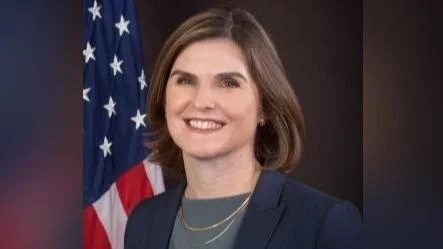Several diocesan overseers of federally funded school meal programs have expressed concerns over recent changes announced by the U.S. Department of Agriculture (USDA). The Trump administration's decision to cut two major programs could leave some children without meals and complicate the operation of remaining initiatives.
In mid-March, the USDA revealed plans to eliminate funding for two programs that together provided more than $1 billion for schools and food banks to purchase local farm products. These include the Local Food for Schools Cooperative Agreement Program and the Local Food Purchase Assistance Cooperative Agreement, which accounted for $660 million and $420 million, respectively.
These local foods programs enhanced the National School Lunch Program and School Breakfast Program, both aimed at providing nutritionally balanced meals to students. Federal funds are administered by state agencies in collaboration with school nutrition officials.
Lizanne Hagedorn, executive director of Nutritional Development Service (NDS) of the Archdiocese of Philadelphia, described the program as “a win-win for the schools, food banks … as well as the farmers and producers.” She noted that NDS would lose between $500,000 and $600,000 in funding.
Sister Ann Middlebrooks from the Diocese of Shreveport stated that her schools serve about 1,000 kids daily with a budget heavily reliant on local farm funds. “It’s going to impact me greatly,” she said. Sister Ann anticipates having to adjust menus and possibly increase lunch prices due to these cuts.
Gerald J. Wutkowski Jr., communications director for New York's archdiocesan schools office, indicated concern over potential changes in eligibility criteria for student meal programs. He warned that raising family income thresholds could affect participation rates.
Hagedorn also raised alarms about proposals threatening the Community Eligibility Provision (CEP), which allows high-poverty schools to provide free meals without household applications. She argued this change would increase administrative burdens while leaving many children without access to nutritious meals.
The Archdiocese of Philadelphia has been using CEP effectively at 99 schools. Hagedorn estimated that proposed cuts could negatively impact 8,000 students currently served by NDS.
David Stier from NDS emphasized how eliminating CEP would require processing thousands of applications in multiple languages—an effort exceeding current capacity—and necessitate additional staffing. He added that safeguarding sensitive information like Social Security numbers would further complicate matters.
Stier criticized federal moves as a step backward: “The reason NDS was created was … students at Catholic schools were coming to school hungry." Recent policy changes risk pushing organizations closer to conditions necessitating their initial creation.
States like California have enacted universal free meal legislation regardless of income; however other states face challenges securing budgets or political consensus for similar measures.
 Alerts Sign-up
Alerts Sign-up






